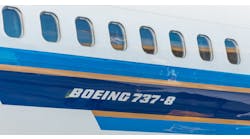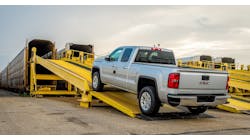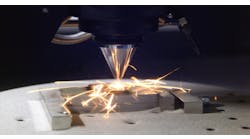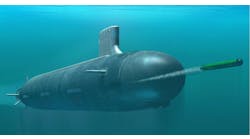Boeing Co. is establishing a partnership with U.K.-based ELG Carbon Fibre that will recycle excess aerospace-grade carbon-fiber composite material for use by other manufacturers to produce industrial goods. It’s said to be the first agreement of its type, and covers carbon fiber used to manufacture aircraft components and structures from 11 Boeing plants worldwide.
The agreement involves expanding the scope of a pilot-scale recycling process the two companies installed at Boeing’s Composite Wing Center in Everett, Wash. "This collaboration takes Boeing's commitment to protect the environment to a whole new level. Recycling composites will eventually be as commonplace as recycling aluminum and titanium," stated Kevin Bartelson, 777 Wing Operations leader.
Boeing and ELG are considering expanding their agreement to include recycling excess material from Boeing sites in Canada, China, and Malaysia.
Because it is very strong, but lightweight, carbon-fiber reinforced material is being used to an increasing extent in aircraft manufacturing, including the Boeing 787 Dreamliner and 777X long-range jets. Boeing calls itself "the largest user of aerospace-grade composites from its commercial and defense programs".
While it has worked to identify an economic model for recycling carbon-fiber materials, it has made more progress in minimizing its surplus materials and collecting the scrap.
"Recycling cured carbon fiber was not possible just a few years ago," stated Tia Benson Tolle, Boeing Materials & Fabrication director for Product Strategy & Future Airplane Development. "We are excited to collaborate with ELG and leverage innovative recycling methods to work toward a vision where no composite scrap will be sent to landfills."
ELG Carbon Fibre operates the world’s first and largest carbon-fiber recovery plant in Coseley, England, using a patented process, and manufacturing recycled carbon-fiber products. These include milled fibers in several variants, suitable for epoxy coatings, thermoplastic injection molding, and compounding applications. It also produces non-woven carbon-fiber and hybrid non-woven mats, for molding processes or for producing intermediate products.
It also produces recycled carbon-fiber pellets for reinforcing thermoset and thermoplastic compounds, and chopped carbon fibers for thermoset and thermoplastic molding compounds.
The recycling method involves thermos-processing excess carbon-fiber material in a furnace that vaporizes the resin holding carbon-fiber layers together, leaving clean fiber material. Boring stated that using the process over 18 months it has saved 1.5 million lbs. of carbon fiber, which was cleaned and sold to electronics and transportation manufacturing.
"Security of supply is extremely important when considering using these materials in long-term automotive and electronic projects," stated Frazer Barnes, managing director of ELG Carbon Fibre. "This agreement gives us the ability to provide that assurance, which gives our customers the confidence to use recycled materials."






